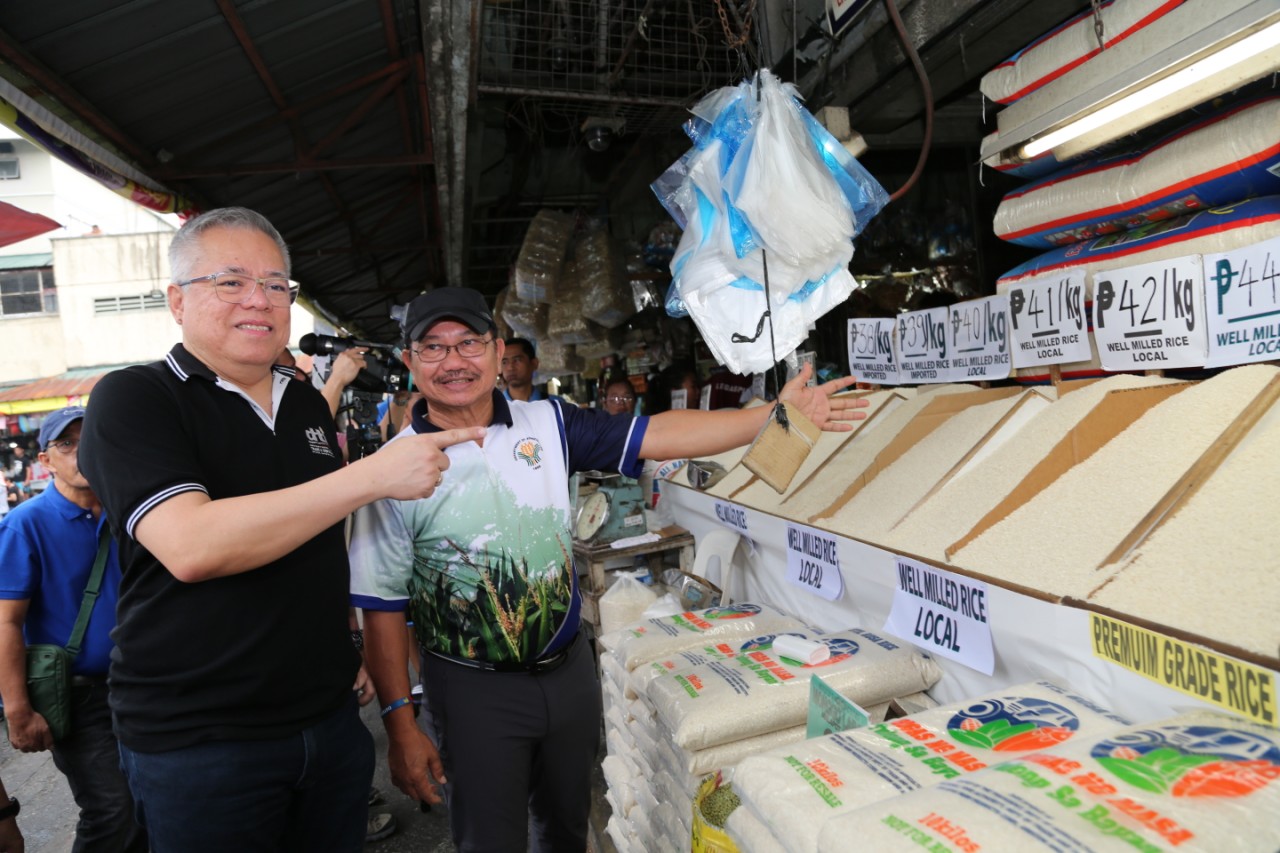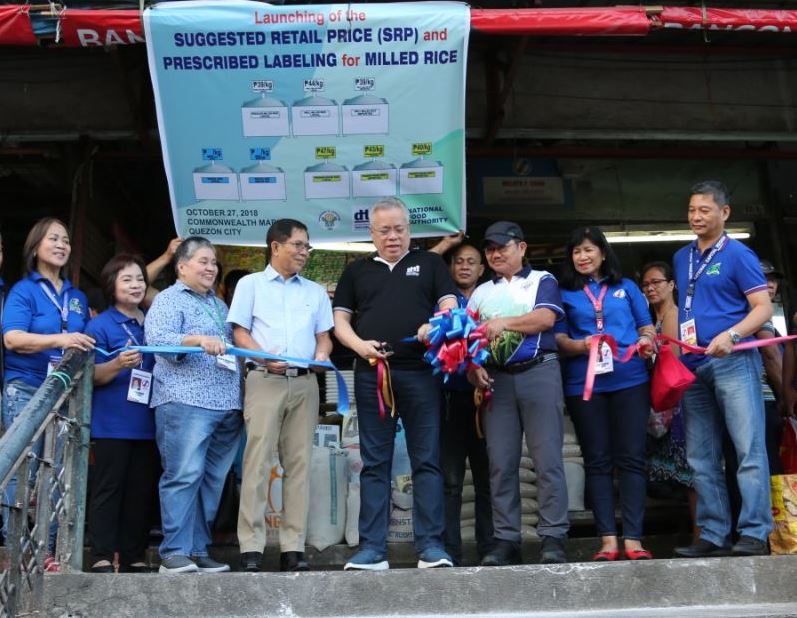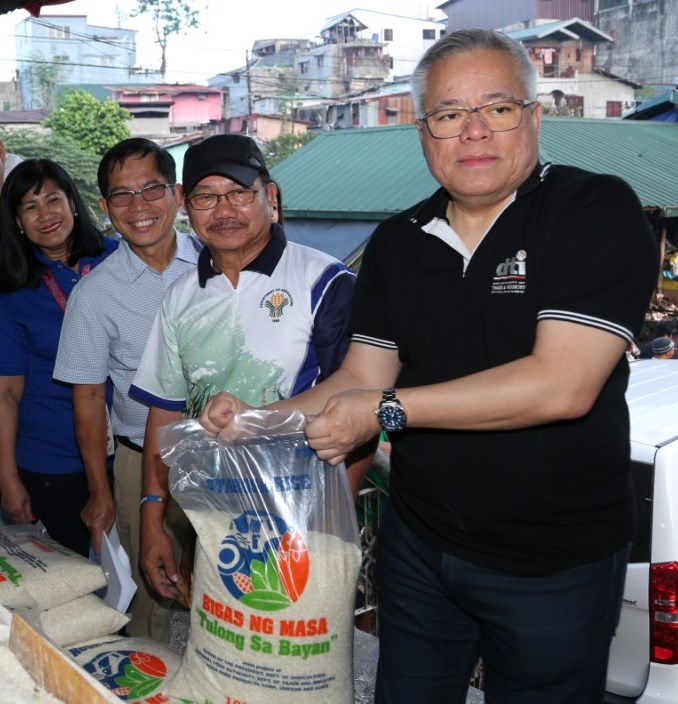 |
| DTI Sec. Ramon Lopez and DA Sec. Emmanuel Piñol launch the SRPs for rice at Quezon City. |
Department of Trade and Industry (DTI) Secretary Ramon Lopez, Department of Agriculture (DA) Secretary Emmanuel Piñol, and the National Food Authority (NFA) Deputy Administrator Tomas Escarez joined forces in launching the prescribed labeling and suggested retail price (SRP) for milled rice on 27 October 2018 at Commonwealth Market in Quezon City.
There are four classification of milled rice – regular milled, well milled, premium grade, and special rice – which will be sold following the mandated SRPs except for special rice that covers organic, Cordillera heirloom, and other indigenous varieties.
The SRPs for imported rice are: Php 39 per kilo for well-milled, Php 40 per kilo for imported premium grade two, and Php 43 per kilo for premium grade one.
Meanwhile for local rice, the SRPs are: Php 39 per kilo for regular-milled, Php 44 per kilo for well-milled, and Php 47 per kilo for premium grade rice.
 |
| Sec. Ramon Lopez (5th from L) and DA Sec. Emmanuel Piñol (3rd from R) led the ribbon cutting to officially launch the Suggested Retail Price (SRP) and Prescribed Labeling for milled rice. They are joined by NFA Deputy Administrators Judy Dansal (2nd from R) and Tomas Escarez (4th from L), and other NFA officers. |
The government also banned the use of brand names like Sinandomeng, Dinorado, and Angelica to avoid deceptive labeling. These brands will be placed under premium grade rice classification.
The prescribed labeling as well as the SRPs is now being implemented in the entire Metro Manila and cities within the Greater Manila Area. Other regions will follow this scheme after All Souls’ Day. The SRPs on rice will be reviewed and updated regularly.
Sec. Piñol said that penalties and sanctions will be imposed to retailers who will not comply with the SRPs. These include possible revocation of licenses, corresponding fines, as well as criminal charges from four months to four years.
 |
| (from R to L) DTI Sec. Ramon Lopez, DA Sec. Emmanuel Piñol, NFA Deputy Administrators Tomas Escarez and Judy Dansal. |
Following the Joint Memorandum Circular signed by DTI and DA on 18 October, Sec. Lopez said that DTI now has the authority to monitor prices of rice and penalize violators. He explained that DTI will follow the same procedure done in monitoring SRPs of manufactured basic necessities and prime commodities. The agency will initially issue Letters of Inquiry to those who will not comply with the SRP of rice. Notice of Violation will then follow when they don’t correct it as prescribed, and depending on the gravity of the offence as well as size of the business, penalties will be imposed ranging from Php 2,000 to maximum of Php 1 million.
The trade chief also announced the implementation of Presyong Risonable Dapat (PRD) program of DTI, which will allow retailers to directly import rice and sell it to the public at Php 38 per kilo. This will eliminate the layers of traders and ensure immediate availability of affordable rice in the market. The program started with four retailers applying to import 20,000 MT of rice each.♦
Date of Release: 30 October 2018


